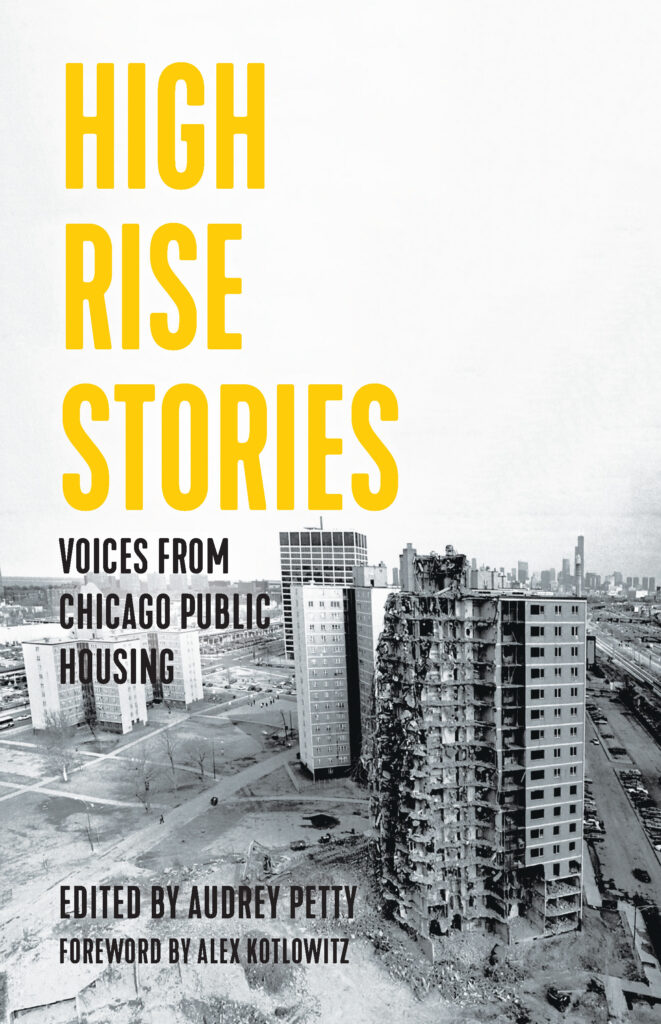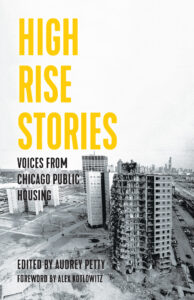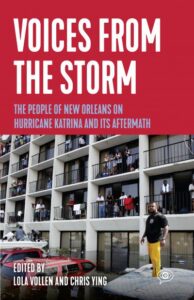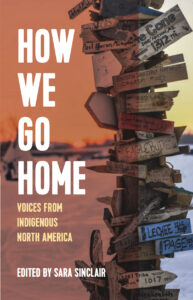The Voice of Witness book series amplifies the stories of people directly impacted by—and fighting against—injustice. We use an oral history methodology that combines ethics-driven practices, journalistic integrity, and an engaging, literary approach.
The books explore issues of inequity and human rights through the lens of personal narrative. Each project aims to disrupt harmful narratives by supporting historically marginalized or silenced communities to tell their own stories in their own words.
Book clubs are useful tools for engaging and interacting with these oral histories and the issues they highlight. Find our handout with guidance on planning and facilitating one here.
Use the questions below to start a book club for High Rise Stories: Voices From Chicago Public Housing.

Discussion Questions:
- How do you think Chicago’s high rise buildings were viewed by outsiders who observed them versus by insiders who lived in them? What does this discrepancy say about insider/outsider dynamics?
- Dolores Wilson lived for most of her life—53 years—in Cabrini Green. She was 82 years old when she was issued an eviction notice saying that she had to be out within 120 days. Dolores did not have enough time to pack all her belongings, and lost important mementos in the move. What kind of long-term emotional impact might this have had on Dolores? What rules should exist regarding the eviction of elderly tenants?
- Dawn Knight describes turning to crack cocaine following the murder of her brother. She recalls being surrounded by gangs, violence, police raids, and drugs while growing up in Chicago’s Robert Taylor Homes. At what point do we stop seeing a child as a victim, and
work to advance their personal agency? Does society have any responsibility to support children like Dawn? If so, what would it entail? - When talking to his interviewer, Donnell Furlow says “I didn’t think nobody really cared about what we went through in the projects.” What do you think it takes to make people care about public housing and the people who live there?
- Yusufu Mosley recounts the multi-generational poverty his family experienced. How do legacies like poverty get handed down from generation to generation? Is poverty a failure of something? If so, what?
- Eddie Leman remembers a military recruiter coming to his school and advertising a program called Delayed Entry, through which high school kids could sign the papers committing to the Marines prior to their graduation. Why do you think these recruiters target schools in poor neighborhoods? What do you think attracts low-income high school students to military service?
- After seeing the demolition of Cabrini Green, the high rise where she grew up, Sabrina Nixon says, “Just seeing anything torn down is heartbreaking.” What do you think she means by this? Analyze her statement.
- Paula Hawkins describes the great community that existed in Cabrini Green: neighbors sharing food, children playing, and women in the building helping each other watch the kids. Paula says that “living there was like a family reunion all the time.” Often, the sense of love and community in the high rises is overlooked. How does Paula’s story complicate the traditional narrative about the danger and deterioration of public housing?
- Sonovia Petty was just a teenager when she became a homeless single mother of two. Human Services placed her and her children in a shelter that was a converted mental hospital, sharing a room with another single mother of three. They had to share a communal shower where they were monitored, the facility was locked, and they had to earn passes to leave and come back. Why were their living conditions set up in this manner? What does this say about the treatment of America’s poor?
- Chandra Bell lived in Cabrini Green for over 20 years. She moved to a town home in Orchard Park after the demolition plan was announced. Chandra’s youngest son was arrested on a drug charge, and according to the Housing Authority rules, he will be forbidden from living with Chandra or even visiting her after his release. How might these strict rules banning people with criminal charges affect families, and what are some of the long-term impacts of these rules?
- Should housing be considered a basic human right? If so, what social and economic responsibilities do we have in providing it, and how might that responsibility be shared?



